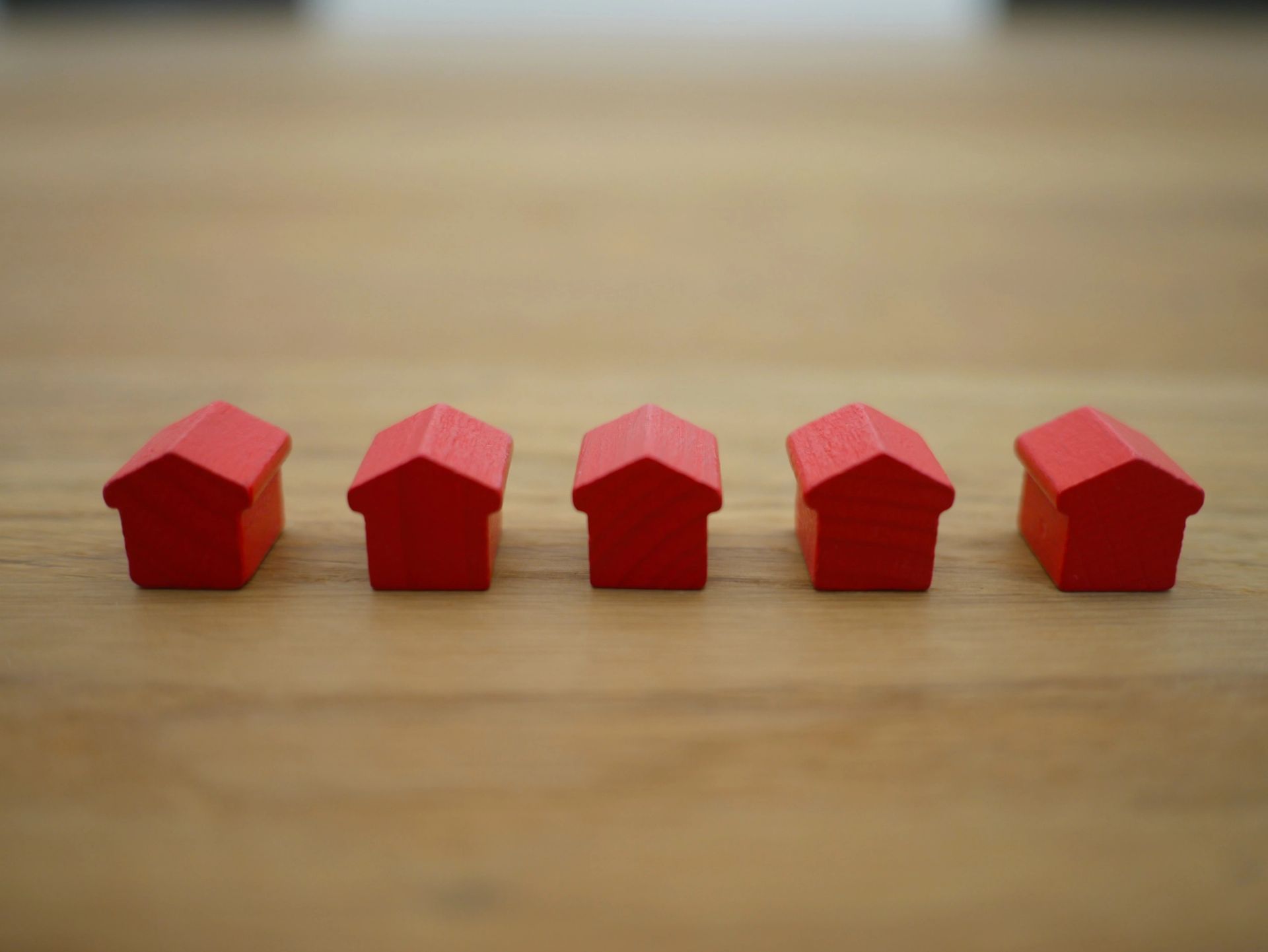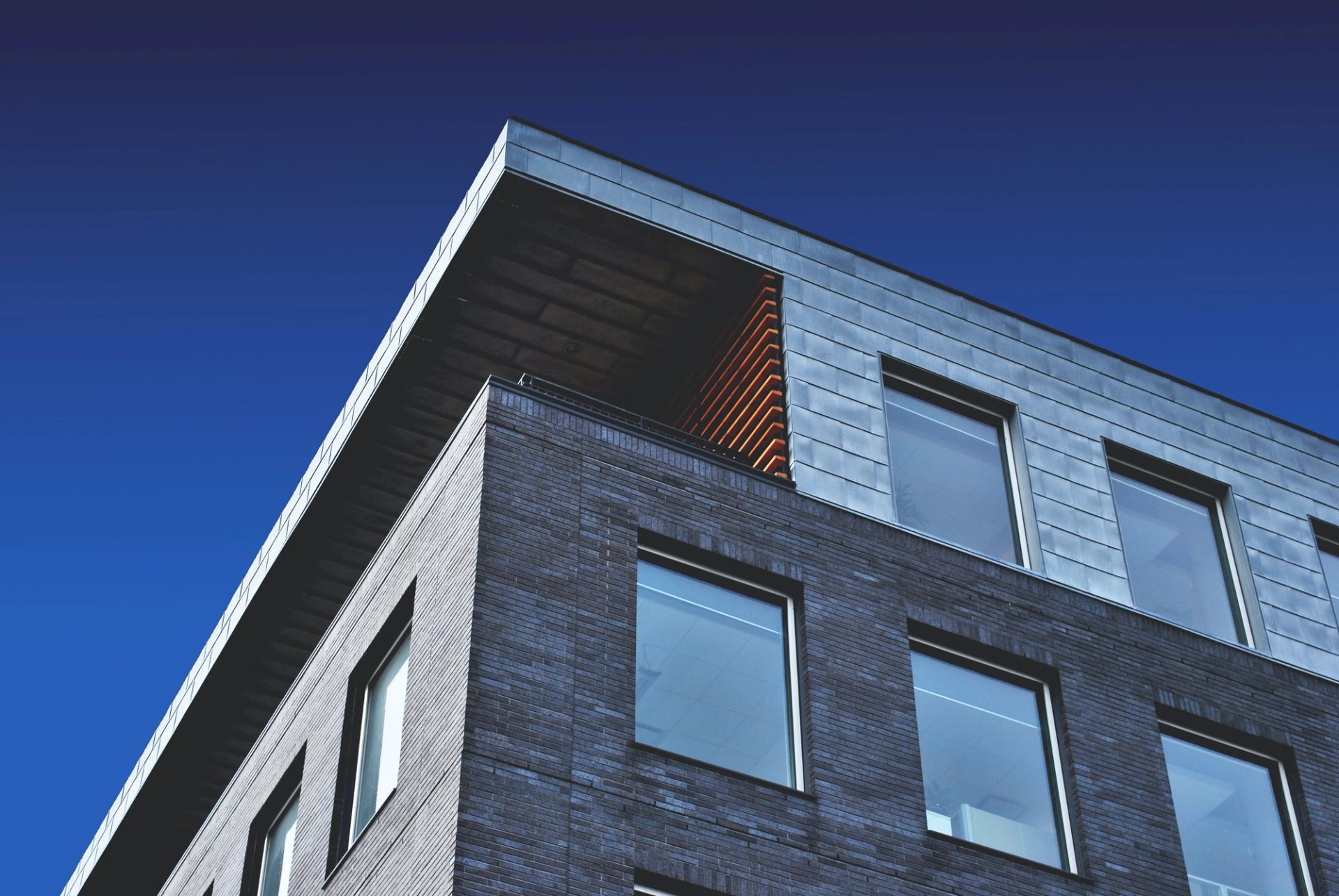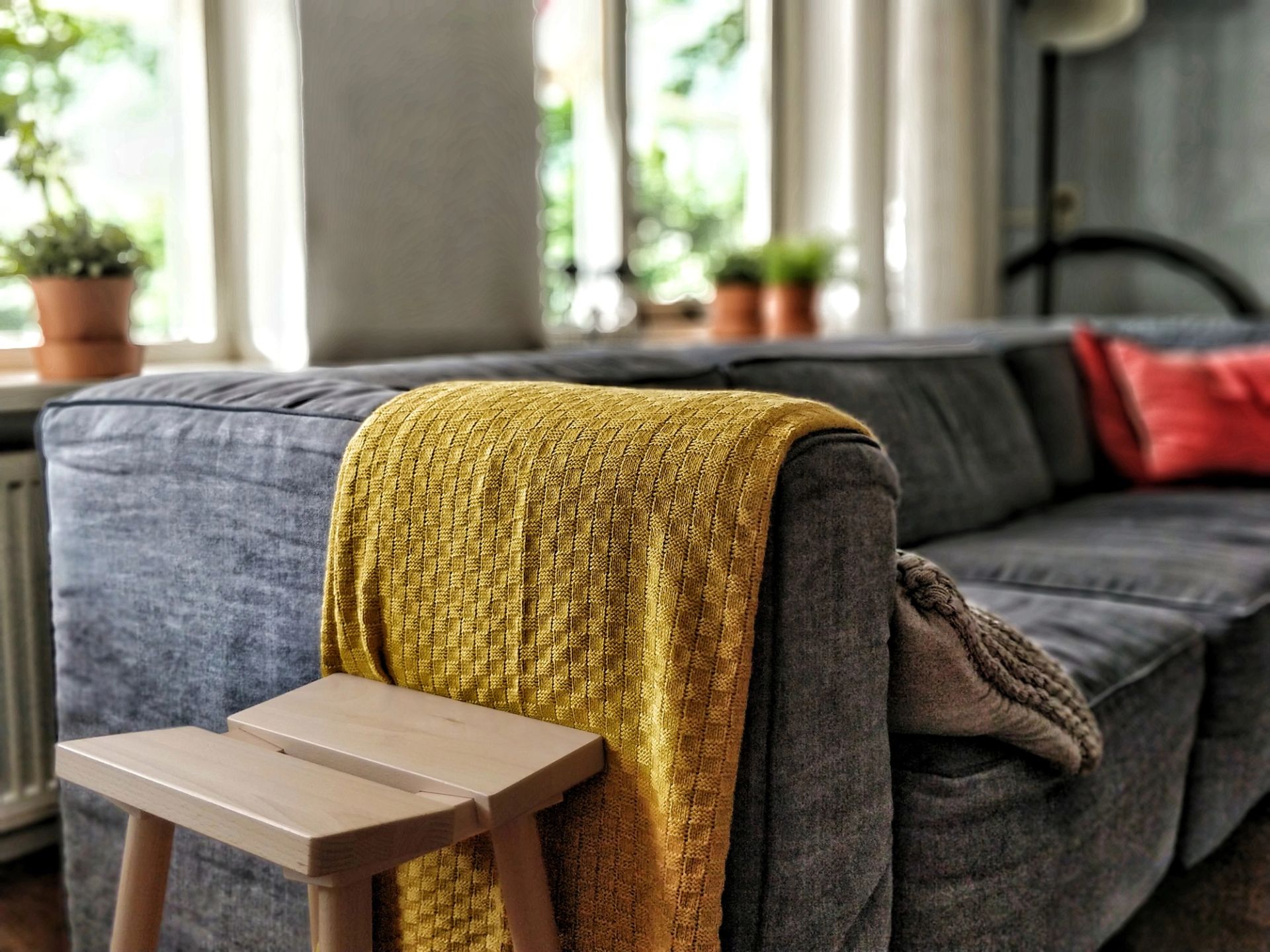Mortgages
Deposit for a Mortgage: Everything you need to know before buying
Last Updated
Fri, 1 Aug 2025
Your mortgage deposit could be key to becoming a homeowner. Here's what it is and how your deposit can affect your search for a home of your own.
A deposit plays an important role for anyone when they're buying a home with a mortgage. In this guide, we outline answers to some key questions about a mortgage deposit.
How does a deposit and mortgage work?
Let's start with a couple of quick summaries of what a mortgage and deposit actually are when it comes to buying a home.
A deposit is an amount of money that you have available or access to, in cash, to buy a home with. Your deposit should be thought of as the amount you are contributing towards the home you want to buy. You’ll usually tell a potential lender what your deposit amount is when you start your mortgage application.
A mortgage is where you have a contract in place with a lender, who will provide you with a loan, to help you buy a property. As part of this contract, you’re responsible as the borrower for repaying your lender back for the money they have lent to you through this mortgage product.
Your loan is typically spread out across many years, which you'll make repayments towards. The repayments are usually made up of you paying back the money you borrowed, plus interest that your lender applies. The loan is secured against your home until it has been paid off in full.
It’s important to know that if you miss any payments or don’t pay off the loan and interest in full, then the lender has the right to repossess your home and sell it to cover the amount you owe them. You might get some money back, if there is anything left over, once the lender has taken what they are owed.
Where your deposit and mortgage meet is when it comes to the property's total cost. Once you know how much the home you want to get is, you'll know how much you need between your deposit and a mortgage. Put really simply:
Your deposit + a mortgage = the total cost of the property
To get a mortgage, your lender will need to know the amount of your deposit. This helps them to work out what you can afford to borrow from them towards the remaining amount of the property's value. This is typically based around certain financial criteria such as your income, regular expenditure and if you have any existing debt.
You may find that mortgages fall under two main types (relating to interest rates), fixed interest rate or variable interest rate mortgages. And beneath these, there's usually a range of different mortgage products that lenders may have available, such as first time buyer mortgages, 100% mortgages and 95% mortgages.
Having a clear idea of what your deposit is and what the total cost of the properties you'd like to get could help when it comes to looking in to the various mortgage products out there.

Can I get a mortgage with a 5% deposit?
A 5% deposit is usually the minimum amount that you will need to save in order to buy with a mortgage. If you have a 5% deposit saved, then 95% mortgages may be a product that you come across regularly.
With a 95% mortgage, a lender provides you with a loan for 95% of a property’s purchase price. For some people, such as first-time buyers, a lower deposit can be helpful as it means that they don't need a larger deposit in order to become a homeowner. Like with other mortgages, interest rates may also apply on top of the amount that you borrow from them and as part of your mortgage deal. This interest rate may be fixed or variable over the repayment term.
You may also come across 5% deposits with the Government's 'Help to Buy' scheme. With Help to Buy, you'll still need a mortgage, however, you may find this is for a lower amount of the property's value (up to 75%). It's because the Government provides you with a 'Help to Buy equity loan' for up to 20% (or up to 40% in London) of the property value.
To get more information you could visit the Government's Help to Buy website, which gives more information about the equity loan scheme. As things stand, the Help to Buy equity loan scheme is being restricted to first-time buyers only from the 1st April 2021.
5% deposits can also be found for Shared Ownership schemes. If you have your 5% deposit, you can typically apply for a mortgage on a shared ownership property for anything between 25% to 75% towards your share of the property's value, which will likely come with interest rates as most other mortgages do. Let's look at an example and break down the figures to see how this might work:
- Property value = £350,000
- Percentage of the property's value that you can buy = 25%
- Percentage of the property's value the housing association owns = 75%
- Total value of the share of the property you can buy = £87,500
- Housing association's share of the property = £225,000
- Your deposit = £4,375(5%of the value of your share)
- Mortgage needed = £83,125 (remaining 95% of your share)
So, if you have a minimum deposit of 5%, there may be options out there for you to consider, particularly if you're buying for the first time and don't have a larger deposit. As with most things, it might be worth doing your homework first by looking at different mortgage deals, the interest rate applied to products and making sure any lenders are authorised and regulated.
Want to know more about 95% mortgages? Check our complete guide over here!

Can I get a mortgage with no deposit?
While a 5% or 10% deposit can usually be the minimum requirement for a mortgage, there are products out there that you could find with no deposit needed at all. These are often know an 100% mortgages, and they don't require you to put down any deposit of your own. This may sound appealing, particularly if you're looking for a first time buyer mortgage and don't have much deposit. However, 100% mortgages may come with more risk and can be quite rare.
The only 100% mortgage that’s been available recently is what is known as a 'guarantor mortgage'. There are different types, but they all have a requirement on a family member supporting you and the purchase of your home financially. This may come in through them offering their own savings or some of the value in their home as a security against your mortgage.
The security they offer to your lender may be held until you reduce the size of the loan down to a certain percentage of the home's value (e.g. 75%), while you make repayments for a set number of years, or until you pay the loan off in full.
Even though you won't need to save for a mortgage deposit, you'll still need to be approved by a lender for a 100% mortgage. It's so they can understand if you're able to afford the repayments towards your mortgage. To do this, most lenders will look at your credit score (covered later on) and whether you have any existing debts.
Does my deposit affect my mortgage?
It can be common for people to save more money so that they get a bigger deposit when they're looking to buy a home. Typically, a bigger deposit could help reduce the amount you need to borrow from a lender. This is because you're putting more money towards the total cost of the property and you get a lower amount towards your home as part of a loan.
You'll find that deposits are usually expressed as a percentage of the total cost of the property (e.g. a 5% or 10% deposit). Working back from the total cost of the home, this is gives you a better idea of how much deposit you'll need to have or get in order to start the buying process.
There are a couple of things you could start to do to understand how your deposit might affect the mortgage deals you see:
1) Do your research
As a first step, it can help to understand what the total cost of the property you'd like to get actually is. You could use some of the property portals, like Rightmove or Zoopla or by checking-in with your local estate agents. By finding a property (or the average cost of the properties you're interested), this can help when it comes to knowing how much money you'll need from a lending product like a mortgage.
Are you a first time buyer? Here's our guide on everything you need to know including the deposit.
2 ) Look at the numbers
Next is to understand what your own financial position is. You could start with looking at how much you, or you and your partner, might have as a deposit. Understanding what your minimum deposit will be is a good starting point, as it helps you to work out how much money you (or both of you) can put towards buying your home, and how much you might need to find through a mortgage.
Before getting down to the calculations, you may also need to look at your income, or joint household income if you're buying with someone else. It's good to know as incomes are often used by lenders to work out what you might be able to afford to borrow from them through a mortgage product.
So, now that you've worked out your deposit and income(s), you can start to explore what you might need to get through a mortgage. One way to do this is to use a 'mortgage calculator', which can show you how much someone on your salary might be able to get through a mortgage. And if you're buying with someone else, you could also add their salary too, to understand what kind of mortgage you could both get together.
3) Assessing your situation
Once you've explored your options and have an idea of the numbers involved, it's sometimes worth looking at your position again. Hopefully, the mortgage amount that you might need to be able to qualify for fills the gap between your deposit and the total cost of the property. If so, it may be time to start your property search for real!
If the results aren't as positive as you might need them to be, it may be worth revisiting your property search to get a different view. Sometimes looking at different areas or smaller properties can make a difference when it comes to the total cost of buying a home, which could help reduce the size of the loan you'll need to get.
Alternatively, you may need to take more time to save for a larger deposit. This could also help with reducing the amount you need to borrow from a lender through a mortgage, as you're putting more of your own money in to buying the home.
4) Check your credit score
You should also consider checking your 'credit score' before you start a mortgage application. A credit score is a number that gives you an idea of how you may be viewed when you apply for a credit (in this case a mortgage).
Credit scores are calculated by 'credit reference agencies', like Experian, who look at factors such as how much you might already owe in loans, how often you might have applied for loans in the past and whether you make your repayments on your loans in time. When you have a higher credit score, your lender may see you as a lower risk when considering your mortgage application. A 'good or 'excellent' credit score means you may be more likely to be accepted for a mortgage.
5) Remember the other costs
Buying a home can be one of the most expensive financial decisions that you make in life, and it can be easy to forget some of the other costs involved. Besides your deposit, there are also solicitors fees, moving costs and stamp duty may also apply (although not if you're first-time buyers in some cases). Understanding what these costs might be, before you commit time to starting a mortgage application, could become important.

What can I do next?
So you've done your research, checked your credit and some homes that you're interested in. But what next? Well you have a number of options that you could explore to get your mortgage application started:
1) Visit comparison sites
You could start to compare mortgages through comparison tools like MoneySuperMarket. These comparison tools will show you different mortgages from different lenders, along with any additional information such as interest rates or repayment terms. These sites will often ask how much deposit you have and what the home's value is in order to give you a range of options.
This can be a useful way to see which lenders you could approach to start your mortgage application as you can easily compare different offers that may work for you.
2) Speak to a broker
A mortgage broker is someone who's job it is to find lenders who meet the needs of their customers' mortgage needs. They are qualified and approved by the Financial Conduct Authority (FCA) to provide you with specialist advice and recommendations when it comes to which products you may want to consider.
A broker will also help when it comes to your mortgage application. They can help with any of the relevant paperwork and contact between you and any lenders that they identify.
3) Speak to a lender directly
If you decide a mortgage broker isn't for you, you could always approach a lender directly to get an application started. It may be worth doing your research by looking at comparison sites or comparing different offers that you see before spending time doing this. And as with other options, knowing how much deposit you have can help here.
4) Look at alternatives to mortgages
If, for whatever reason, you decide that a mortgage isn't for you, then it might be worth looking at other products. One option is Wayhome.
With Wayhome, you're able to buy with a 5% deposit and there's no mortgage or lending involved. Instead, Wayhome arranges a partnership between you and our funding-partners (big institutions like pensions funds) to buy the home together, in cash.
If you were to buy 5% of the home with your deposit, you would pay rent on the remaining 95% of the home. This rent then goes to the funding partner, who bought the majority of the home. And any excess rent you pay each month goes towards building increased equity in your home.